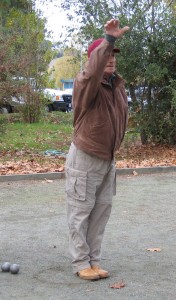You are surfing the Net and you land on a certain website; suddenly you need some information.
You start looking for a contact, a chat person.
You look under every available link and come out empty handed.
Nada, nichts, nothing, rien!
Yoo-hoo… anybody home?
Obviously somebody is home, but nobody wants to talk to you.
You came to this site and you can look at everything you want, but if you have any questions (or God forbids complaints), tough!
The gnomes pulling the strings of this website live in splendid isolation and don’t want to be bothered by any Tom, Dick or Harry.
Well my friends, this is a big mistake.
No matter how big you are you need to keep your ears close to the ground and stay in touch with your patrons.
You know these pesky little people who pay your salary, your extravagant bonuses, your Mercedes, your mistress’ upkeep.
Failing to listen has proved to be very detrimental to anybody’s financial health.
The arrogance of the powerful is often the seed to their downfall.
“Qu’ils mangent de la brioche” (let them eat cake)” supposedly said Marie-Antoinette.
A few years later her head rolled into a basket.
I am pretty sure that even Barak Obama (or some of his people) would acknowledge your letter if you wrote to him.
They might question you, but they will acknowledge you.
And that’s my point. You want to be heard.
Whether your goal is to praise or to complain, there ought to be an area on any blog or website where readers can communicate with the master of the castle.
Nothing infuriates an average Netizen more than a raised drawbridge.
If you cannot communicate with the people inside the fortress, you can lay a siege (not very practical) or take your business somewhere else.
Smart leaders keep abreast of changing trends and will modify their policies to accommodate malcontents.
The ground is littered with once mighty fortresses and lords who didn’t have the good sense to listen to their subjects.
Does anybody remember Kodak?
A good example of a complacent company that refused to listen to their customers and faded into oblivion.
Alain
PS: On this site, you can leave a comment by clicking on the blue link “Leave a reply” posted at the bottom of each article

